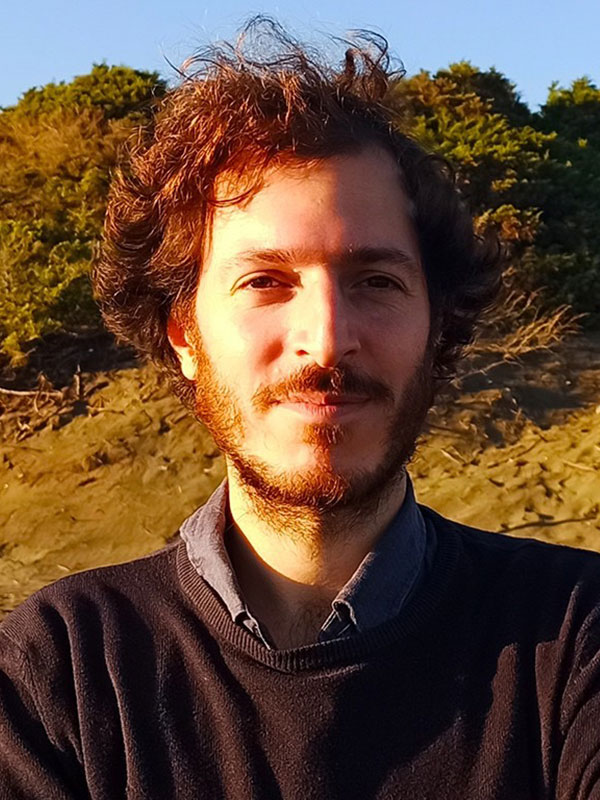Before moving to the United States, I attended the University of Rome “La Sapienza,” where I specialized in Romance languages and linguistics. I did my PhD in Romance languages and literatures at the University of Chicago, where I subsequently worked as a Teaching Fellow. During my PhD, I particularly enjoyed working as editorial assistant for the academic journal Dante Studies, and as an intern at the magazine Lapham’s Quarterly, where my duties included researching and writing diagrams, fact-checking, and copy editing.
I am sure that choosing a place to settle is not an easy decision. Why did you decide to accept the offer from our department?
I was struck by the combination of positive vibes, intellectual rigor, enthusiasm, and welcoming attitudes. From the very beginning, I felt that it was a wonderful place to engage in intellectual conversations, a place where students and colleagues were incredibly supportive of one another.
I truly agree that the community we create in our department is what sets us apart from others, and I am happy to hear that you saw it as well. Let’s go back to the beginning: What made you fall in love with Medieval studies?
As a teenager, I was obsessed with music. Looking back, I think that song lyrics were my entry point to literature: songs pushed me to deeply analyze texts. What I liked about literature was its ability to convey nuances while exposing readers to difficult and sometimes challenging situations. When I enrolled at the University of Rome “La Sapienza,” I decided to pursue literary studies. At first, I wanted to become an expert in modern literature or linguistics. But I ended up choosing Romance philology, which focuses on the Middle Ages. What made a difference was the ways in which professors taught Romance philology: their approach was comparative, embracing many languages and literary traditions. In class, professors constantly drew connections between Medieval literature and ancient and contemporary works, and that was the reason why I fell in love with Medieval studies. It was possible, for instance, to write a final paper for a course in Romance philology on T.S. Eliot’s modernist poem The Waste Land, exploring its relationship with Medieval chivalric literature.
We have been talking about your research in general terms, but I am sure that everybody wants to know more details. Could you talk about what your focus is now and expand on your future plans?
My research focuses on literature and economics. I am now working on a monograph on Dante Alighieri’s Divine Comedy, retracing how the poem engages with Medieval economic theories and practices, with a special focus on debt. My Dante project originates from my broader research on fiction and economics across Medieval Romance literatures, and I consider Dante as a participant in a larger Mediterranean literary and economic network that still deserves further exploration. An article I am particularly excited about will be coming out next year. It consists of a close reading of the stained-glass windows of the moneychangers at the Cathedral of Chartres in conversation with the Medieval reception of the Biblical story of Joseph as provident administrator. The idea for this article came to me when I visited the cathedral a few years ago. While researching for it, I combined a wide variety of sources, including literary texts, theological treatises on economic matters, and artworks.
Next year, my courses will include an interdisciplinary investigation of money in Medieval and modern fiction. In general, I enjoy teaching methods to examine literary texts to students who are not majoring in the humanities or specializing in literary studies. I take this as an opportunity to demonstrate the power of fiction as well as the relevance of literary studies for other realms of knowledge. In the spring, I will also teach a course on the moon in literary texts, artworks, and films as an imaginative space which provides an opportunity to address broader literary and philosophical questions for both authors and readers.
All of this sounds fascinating, and I am convinced that our graduate and undergraduate students will benefit greatly from your research and teaching. I have one more question: what are your interests outside of teaching and working?
I enjoy sports. I really like soccer—my favorite team is AC Milan. I am also a basketball, cycling, and tennis fan: I love watching the Boston Celtics, and my favorite tennis players are Agassi and Federer. I like traveling, especially on trains; walking in cities; watching movies in movie theaters; playing (the piano and the guitar) and listening to music (rock; indie; singer-songwriters; jazz; classical).

 The College of Arts
The College of Arts